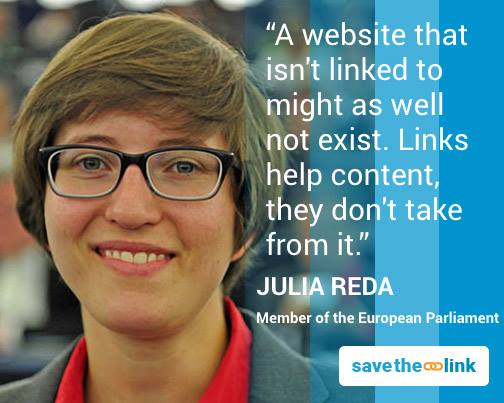Wired: Inside Google’s Internet Justice League and Its AI-Powered War on Trolls »
Category: Internet
-
New net censorship law proposed in Italy
Under the proposed law, the “site manager” of Italian media, including bloggers, newspapers and social networks would be obliged to censor “mockery” based on “the personal and social condition” of the victim — that is, anything the recipient felt was personally insulting. The penalty for failing to take action is a fine of €100,000. Truthfulness is not a defense in suits under this law — the standard is personal insult, not falsehood.
BoingBoing: Italy on the verge of the stupidest censorship law in European history »
-
“World’s largest internet exchange sues Germany over mass surveillance”
The world’s largest internet exchange point is suing the German government for tapping its communications systems.
DE-CIX runs a number of critical exchange points – most of them in Germany, but with others in France, Spain and the United States – and has sued the German interior ministry over orders from the German security services to allow them to tap its exchange centers.
The goal of the lawsuit, filed in federal court in Leipzig, is to reach a “judicial clarification” over whether the German government’s actions are legal, the company said (in German), and “in particular, legal certainty for our customers and our company.”
The Register: World’s largest internet exchange sues Germany over mass surveillance»
-
5 July podcast 17: EU copyright reform, free city WiFi and Mozillas web developer conference
The 5 July podcast – your channel to information about what’s going on when it comes to Internet politics, mass surveillance and civil rights.
On EU copyright “reform”, free city WiFi and Mozilla’s web developer conference in Berlin. Now in English.
More information and episode notes at Soundcloud.
Soundcloud » | Youtube » | Download (MP3) »
Feedback and comments (MP3) to: karl[at]5july.org
-
New copyright directive fails at every level
“We need a copyright reform to make Europe fit for the 21st century. We now have a proposal that is poison for European’s free speech, poison for European business and poison for creativity. It could not conceivably be worse.”
– Joe McNamee, Executive Director of European Digital Rights
EDRi Press Release: New copyright directive fails at every level »
-
EU: Junckers’ mixed signals on mobile networks
Today the president of the European Commission, Jean-Claude Juncker, gave his “State of the Union” speech in the European Parliament.
Every city in the EU will offer free wireless internet access in its centre by 2020, EU commission president Juncker promised in his state of the EU speech on Wednesday. “We need to be connected. Our economy needs it. People need it,” said Juncker. He also said that a faster mobile network, known as 5G, should be “fully deployed” in the EU by 2025.
Two reflections:
First, it is becoming ever harder for cafés, restaurants, and others to provide free internet access for their customers. The reason is that they can become liable for any copyright infringements their customers may commit. (Mainly because of EU regulations.)
Doesn’t this apply for “cities” as well? Will there be separate rules for free WiFi provided by private and public entities?
Second, there is the matter of what you see and what you don’t see. Free WiFi sounds like a good idea for most people. But what will the effects be on commercial networks? As you cannot compete with free (or rather stuff paid for by the taxpayers) – will this hamper the deployment of e.g. “faster mobile networks”? It seems like Juncker is sending mixed and conflicting signals.
Finally, one must put free, public networks into the context of mass surveillance. Exactly who will operate them – and what law enforcement agencies will these operators collaborate with?
/ HAX
-
#SaveTheLink
Members from left to right in the European Parliament fighting the European Commissions proposal to tax and to extend copyright rules on Internet linking.
Youtube » | #SaveTheLink
